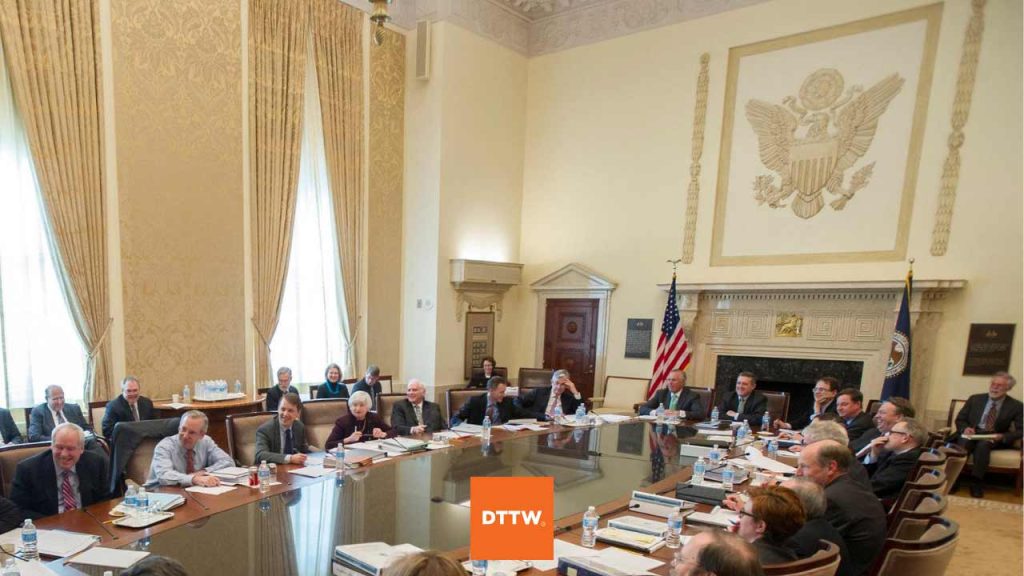Today's FOMC meeting is one of the most critical events in the financial calendar, influencing global markets and economic policies. The Federal Open Market Committee (FOMC) plays a pivotal role in shaping monetary policy in the United States. With its decisions affecting interest rates, inflation, and economic growth, the FOMC meeting is closely watched by investors, economists, and policymakers worldwide.
As the world's leading economy, the United States' monetary policies have ripple effects across the globe. The FOMC meeting today will set the tone for future economic activities, impacting everything from stock prices to currency exchange rates. Understanding what happens during these meetings is essential for anyone interested in finance or economics.
In this article, we will delve into the intricacies of the FOMC meeting, exploring its significance, how it operates, and the potential outcomes of today's session. Whether you're an investor looking to make informed decisions or simply curious about how global economies function, this guide will provide you with valuable insights.
Read also:Omaha Vs St Johns A Comprehensive Analysis Of Two Vibrant Cities
Table of Contents
- What is the FOMC?
- FOMC Meeting Today: What to Expect
- The FOMC Decision-Making Process
- Economic Impact of FOMC Decisions
- Historical Insights into FOMC Meetings
- How Markets React to FOMC Announcements
- Global Effects of FOMC Decisions
- Inflation and Interest Rates
- Investment Strategies Around FOMC Meetings
- Conclusion and Next Steps
What is the FOMC?
The Federal Open Market Committee (FOMC) is a branch of the Federal Reserve System, responsible for implementing monetary policy in the United States. Established in 1913 under the Federal Reserve Act, the FOMC is composed of 12 members, including the seven members of the Board of Governors of the Federal Reserve System and five of the 12 Federal Reserve Bank presidents.
The primary objectives of the FOMC are to promote maximum employment, stable prices, and moderate long-term interest rates. Through its meetings, the committee evaluates economic conditions, assesses risks, and determines the appropriate stance of monetary policy.
Role of the FOMC in the Economy
The FOMC plays a crucial role in shaping the U.S. economy by setting monetary policy. Its decisions directly affect interest rates, which in turn influence borrowing costs for businesses and consumers. By adjusting the federal funds rate, the FOMC can stimulate economic growth during downturns or cool inflation during periods of overheating.
- Monetary Policy Implementation
- Economic Stability
- Inflation Control
FOMC Meeting Today: What to Expect
The FOMC meeting today will focus on reviewing current economic conditions, assessing risks, and determining the appropriate monetary policy stance. Analysts and investors are keenly watching for any changes in the federal funds rate, forward guidance, and updates on the balance sheet normalization process.
Key areas of discussion are likely to include inflation trends, labor market conditions, and global economic developments. The committee will also release updated economic projections and a statement summarizing its policy decisions.
Key Points to Watch
As the meeting unfolds, several factors will be under scrutiny:
Read also:Auburn Basketball The Rise The Impact And The Legacy
- Changes in the Federal Funds Rate
- Forward Guidance on Future Policy Actions
- Economic Projections and Dot Plots
The FOMC Decision-Making Process
The FOMC operates through a structured decision-making process that involves data analysis, policy discussions, and voting. Each meeting typically lasts for two days, with the first day dedicated to reviewing economic conditions and the second day focused on policy deliberations and voting.
Members of the committee rely on a wide range of data sources, including employment reports, inflation data, and financial market indicators, to inform their decisions. The process ensures that monetary policy is based on thorough analysis and consensus-building.
Steps in the Decision-Making Process
- Economic Data Review
- Policy Discussion and Debate
- Voting on Monetary Policy Actions
Economic Impact of FOMC Decisions
The decisions made by the FOMC have far-reaching implications for the U.S. economy and global markets. Changes in interest rates can influence consumer spending, business investment, and housing markets. Additionally, monetary policy decisions impact exchange rates, affecting international trade and capital flows.
For example, raising interest rates can help control inflation but may slow economic growth, while lowering rates can stimulate the economy but risk fueling inflation. The FOMC must carefully balance these trade-offs to achieve its dual mandate of maximum employment and price stability.
Examples of Economic Impact
- Interest Rate Changes Affecting Mortgage Rates
- Inflation Control and Its Effect on Consumer Prices
- Exchange Rate Fluctuations Influencing Trade Balances
Historical Insights into FOMC Meetings
Throughout its history, the FOMC has faced numerous challenges, from managing recessions to combating inflationary pressures. Key moments in its history include the Great Recession of 2008, when the committee implemented unprecedented measures to stabilize the financial system, and the 1970s oil crisis, which led to high inflation and tight monetary policy.
By examining past FOMC meetings, we can gain valuable insights into how the committee navigates complex economic environments and adapts its policies to changing conditions.
Significant Historical Events
- The Great Recession and Quantitative Easing
- Inflation Targeting in the 1980s
- Interest Rate Cuts During the Dot-Com Bubble
How Markets React to FOMC Announcements
Financial markets closely monitor FOMC announcements, as they can trigger significant price movements in stocks, bonds, and currencies. Traders and investors analyze the committee's statement and economic projections to gauge future policy directions and adjust their positions accordingly.
Positive surprises, such as a dovish stance or rate cuts, often lead to rallies in risk assets, while hawkish signals or rate hikes can result in market corrections. The FOMC's forward guidance plays a crucial role in shaping market expectations.
Market Reaction Examples
- Stock Market Gains Following Rate Cuts
- Bond Yields Rising After Rate Hikes
- Currency Strength Linked to Monetary Policy
Global Effects of FOMC Decisions
The U.S. dollar's status as the world's reserve currency means that FOMC decisions have global ramifications. Changes in U.S. monetary policy can impact capital flows, exchange rates, and economic growth in emerging markets. For instance, tighter monetary policy in the U.S. can lead to capital outflows from developing economies, increasing financial volatility.
Central banks around the world often adjust their policies in response to FOMC actions, creating a synchronized global monetary policy environment.
Global Implications
- Impact on Emerging Market Economies
- Exchange Rate Movements and Trade Flows
- Coordination with Other Central Banks
Inflation and Interest Rates
Inflation control is a core responsibility of the FOMC, and interest rates are one of the primary tools used to manage price stability. By adjusting the federal funds rate, the committee can influence borrowing costs and consumer spending, thereby affecting inflation trends.
Recent data shows that inflation has been rising, prompting the FOMC to consider tightening monetary policy. However, the committee must balance inflation concerns with the need to support economic recovery.
Inflation Control Strategies
- Raising Interest Rates to Cool Inflation
- Quantitative Tightening and Balance Sheet Reduction
- Forward Guidance and Communication
Investment Strategies Around FOMC Meetings
Investors can benefit from understanding FOMC meetings and their potential impact on markets. Developing a well-informed investment strategy involves analyzing economic data, monitoring FOMC statements, and adjusting portfolios in anticipation of policy changes.
Some investors adopt a proactive approach by positioning themselves in assets likely to benefit from specific FOMC actions, while others prefer a more reactive strategy, adjusting their holdings after announcements.
Strategies for Investors
- Positioning in Defensive Stocks During Uncertainty
- Allocating to Bonds in Expectation of Rate Cuts
- Trading Currency Pairs Based on Policy Expectations
Conclusion and Next Steps
The FOMC meeting today is a pivotal event for global financial markets, with its decisions shaping the economic landscape for months to come. Understanding the committee's objectives, decision-making process, and potential outcomes is essential for anyone seeking to navigate the complexities of modern finance.
We encourage readers to stay informed by following official FOMC statements, economic data releases, and expert analyses. Additionally, consider sharing this article with others who may find it valuable or exploring related content on our website for further insights.
References:
- Board of Governors of the Federal Reserve System. (n.d.). Federal Open Market Committee.
- Investopedia. (n.d.). FOMC Definition.
- U.S. Bureau of Labor Statistics. (n.d.). Economic Data.


